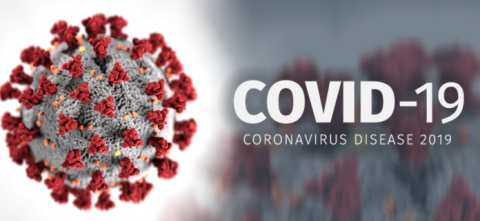Essential Oils and COVID-19: Can They Really Help?
Discover if essential oils can relieve COVID-19 symptoms and how to use them safely. Reliable information and practical advice for a natural approach.
HEALTHESSENTIAL OILSBLOG-LIST
11/13/20242 min read


COVID-19 has turned our lives upside down and led us all to seek solutions to protect ourselves andstrengthen our immune systems. Among the natural remedies that have gained popularity are essential oils. But can they really help fight COVID-19? 🤔
Before we dive into the heart of the matter, it's crucial to remember that essential oils are not a treatment for COVID-19. They are in no way a substitute for vaccines and medical treatments recommended by health authorities.
That being said, some essential oils have antiviral, antibacterial, and anti-inflammatory properties that can help relieve certain symptoms and strengthen your natural defenses.
In short:
Essential oils do not cure COVID-19.
Some oils can relieve symptoms.
Favor diffusion or diluted topical application.
Seek advice from a healthcare professional before use.
Wash your hands, wear a mask and respect barrier gestures.
Table of Contents
Which essential oils for which symptoms?
How to use essential oils safely?
Precautions for use and contraindications
FAQ
1. Which essential oils for which symptoms?
Some essential oils can help you manage the symptoms of COVID-19:
Eucalyptus radiata: known for its expectorant and antiviral properties, it can help clear the airways in case of cough or nasal congestion.
Ravintsara: this essential oil has antiviral and immunostimulant properties. It can help strengthen the immune system and fight respiratory infections.
Tea tree: a powerful antiseptic, it can be used to purify the ambient air and limit the spread of viruses.
Peppermint: it can relieve headaches and muscle aches, sometimes associated with COVID-19.
Lavender: known for its relaxing properties, it can help manage stress and anxiety related to illness.
2. How to use essential oils safely?
Diffusion: a few drops in an essential oil diffuser can purify the air and breathe in the benefits of the oils.
Inhalation: inhale the essential oil directly from the bottle or by pouring a few drops on a tissue.
Topical application: always dilute the essential oil in a vegetable oil (sweet almond, jojoba...) before applying it to the skin. Massage the chest, back or soles of the feet to relieve symptoms.
3. Precautions for use and contraindications
Pregnant or breastfeeding women, children under 6 years old, people with epilepsy or asthma: seek advice from a healthcare professional before using essential oils.
Never ingest essential oils.
Avoid contact with eyes and mucous membranes.
If irritation occurs, discontinue use.
Keep essential oils out of the reach of children.
4. FAQ
Q: Can essential oils replace vaccines against COVID-19? A: No, essential oils do not replace vaccines. Vaccination remains the most effective way to protect yourself against COVID-19.
Q: Where can I buy quality essential oils? A: Choose organic stores, pharmacies or specialized websites. Make sure the essential oils are 100% pure and natural.
Q: Can I use essential oils if I am already under medical treatment? A: It is important to consult your doctor before using essential oils, especially if you are already taking medication.
Conclusion
Essential oils can be a useful complement to relieve certain symptoms of COVID-19 and strengthen your overall well-being. However, it is important to use them with caution and not consider them a miracle cure.
Take care of yourself and your loved ones! 😊
